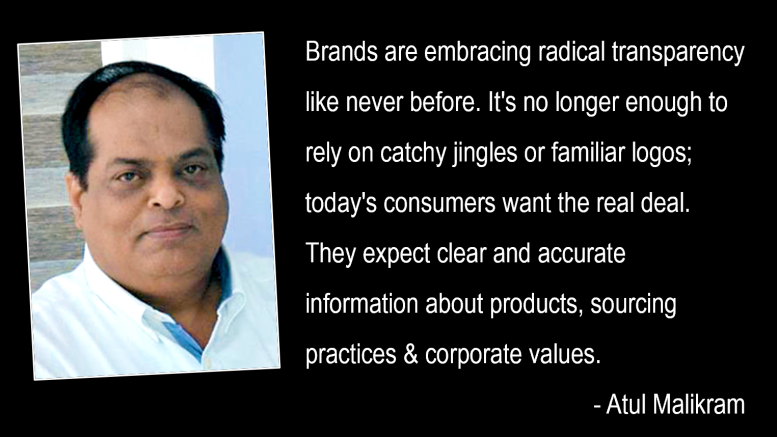In a world filled with numerous advertisements vying for our attention, it’s easy to become skeptical of the claims and promises plastered across screens and billboards. But in the wake of recent upheavals, consumers are no longer content to be mere spectators in the marketing game. Instead, they’ve seized the reins, demanding a new standard of honesty and transparency from the brands they engage with.
Gone are the days when flashy ads and catchy slogans could sweep us off our feet. Today’s savvy shoppers are equipped with huge arrays of information, and they’re not afraid to use it. The COVID pandemic acted as a wake-up call, highlighting the importance of scrutinizing the information we’re fed and questioning the narratives presented to us.
Take a look at recent headlines involving household names like Patanjali and Bournvita, and you’ll see a clear message: consumers are no longer willing to be fooled. Patanjali, known for its Ayurvedic treasures, faced a firestorm of criticism for overhyping the effectiveness of its Coronil and Giloy products during the pandemic. Similarly, Bournvita’s claim of being a health drink took a hit when social media sleuths uncovered its nutritional shortcomings. Recently, the government has informed ecommerce platforms that labeling products like Bournvita and other such beverages as “health drinks” is not permissible since such categorization lacks definition in the country’s food laws, and these products do not meet the criteria to be classified as health drinks. These stories serve as a wake-up call for brands everywhere: honesty is non-negotiable, and trust is a fragile commodity.
In another case, few years back, an automobile brand also caught lying to the public, deceiving the customers, with a scandal that led to paying out over $25 billion in penalties, restitution and fines. They had put software in their cars which were designed to beat diesel tests, changing the results to ensure they did not cross the emissions threshold. It is known as one of the biggest scandals globally to have ever occurred.
In response, brands are embracing radical transparency like never before. It’s no longer enough to rely on catchy jingles or familiar logos; today’s consumers want the real deal. They expect clear, accurate information about products, sourcing practices, and corporate values. After all, building a relationship based on trust and integrity is what truly matters.
As concerns about data breaches and privacy violations mount, consumers are becoming even more discerning. They’re doing their homework, researching brands before making a purchase to ensure their values align. For companies, this means walking the talk at every step of the journey, from where they source their materials to how they uphold sustainability standards.
At the heart of it all lies a simple truth: respect the consumer, and they’ll reward you with loyalty. Brands that prioritize transparency and accountability not only win customers’ confidence but also earn their admiration. On the flip side, those caught in the web of deceit risk losing everything—their reputation, their customers, and their place in the market.
It won’t be wrong to say that we are witnessing a seismic shift in the consumer landscape—a shift driven by a hunger for truth and authenticity. Brands that embrace this change, that open their doors and let the light in, will thrive. But those that cling to the shadows of deception will find themselves left behind. In this age of information, honesty isn’t just the best policy; it’s the only policy that matters.
The views and opinions published here belong to the author and do not necessarily reflect the views and opinions of the publisher.



Be the first to comment on "Marketing Makeover: Why Honesty is Now Non-Negotiable"